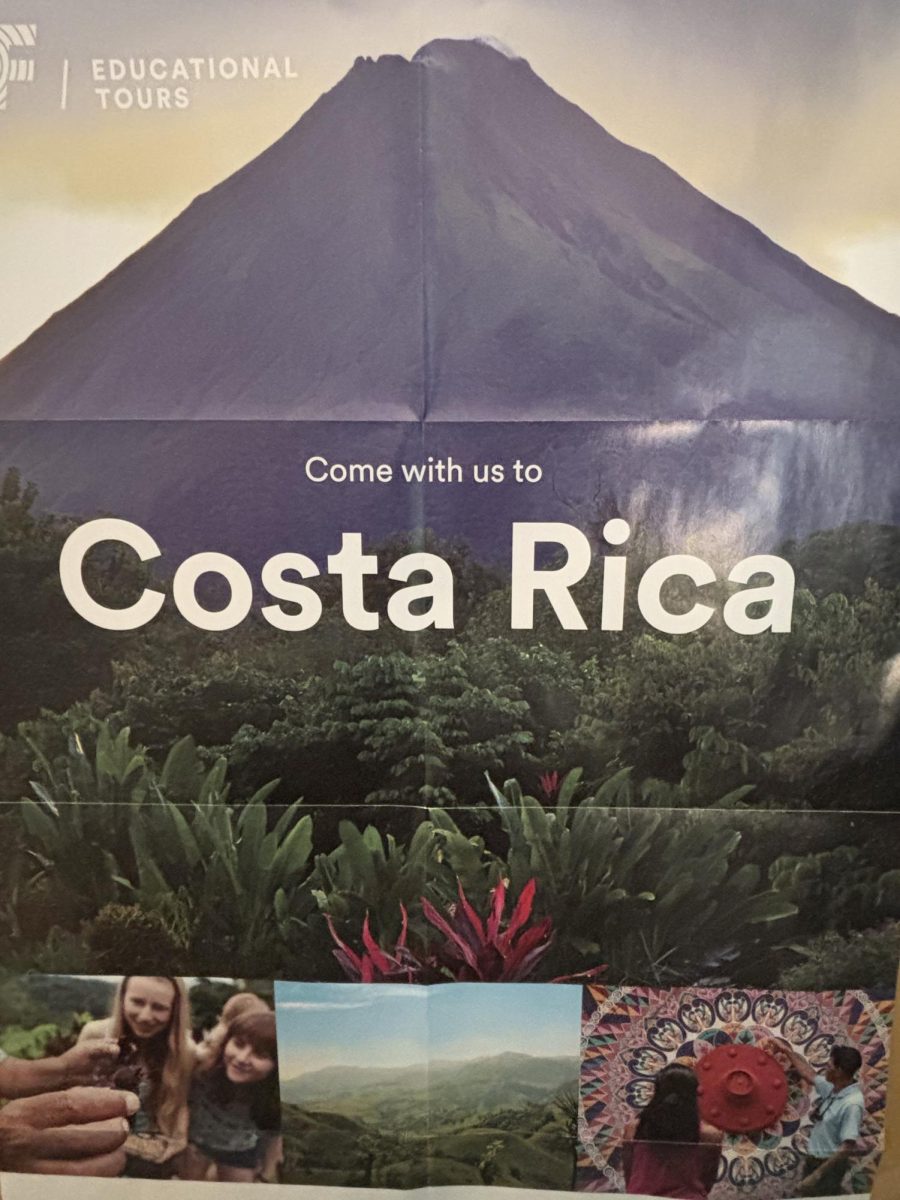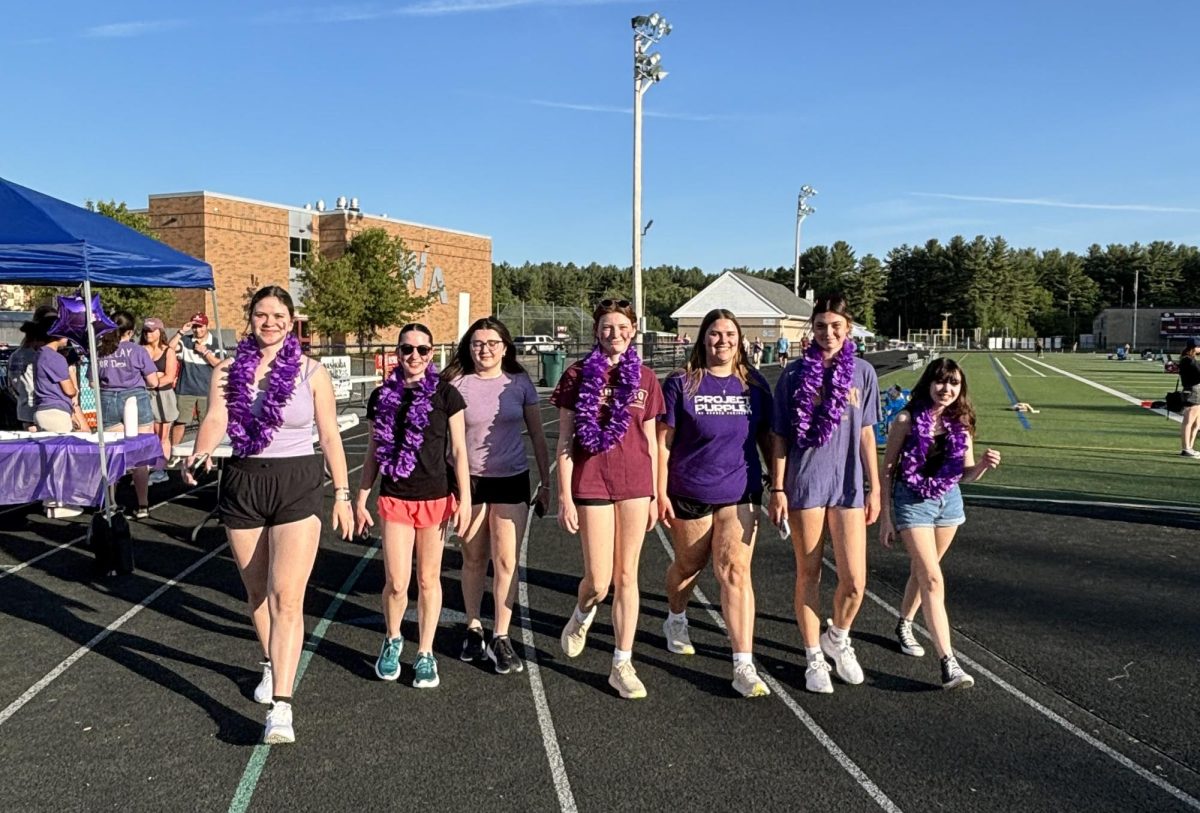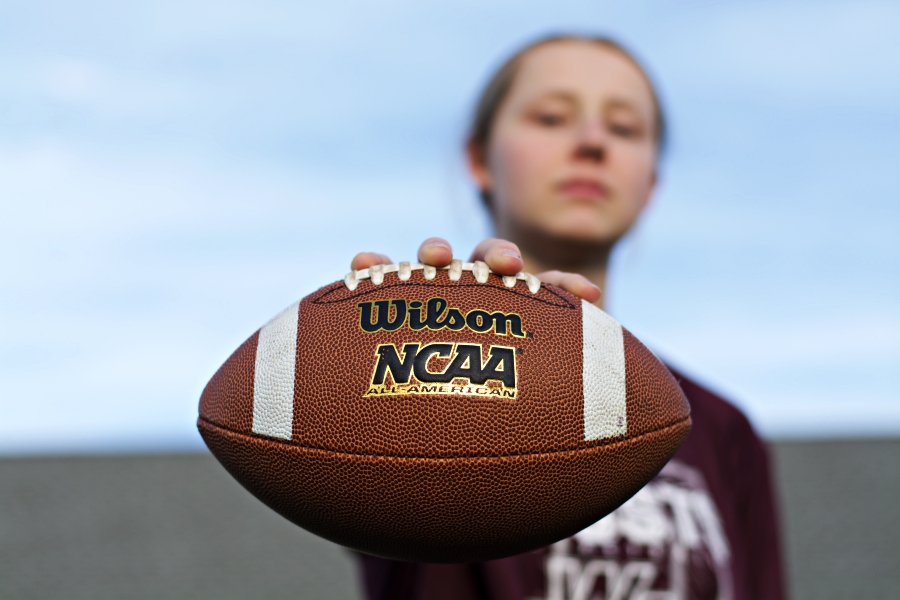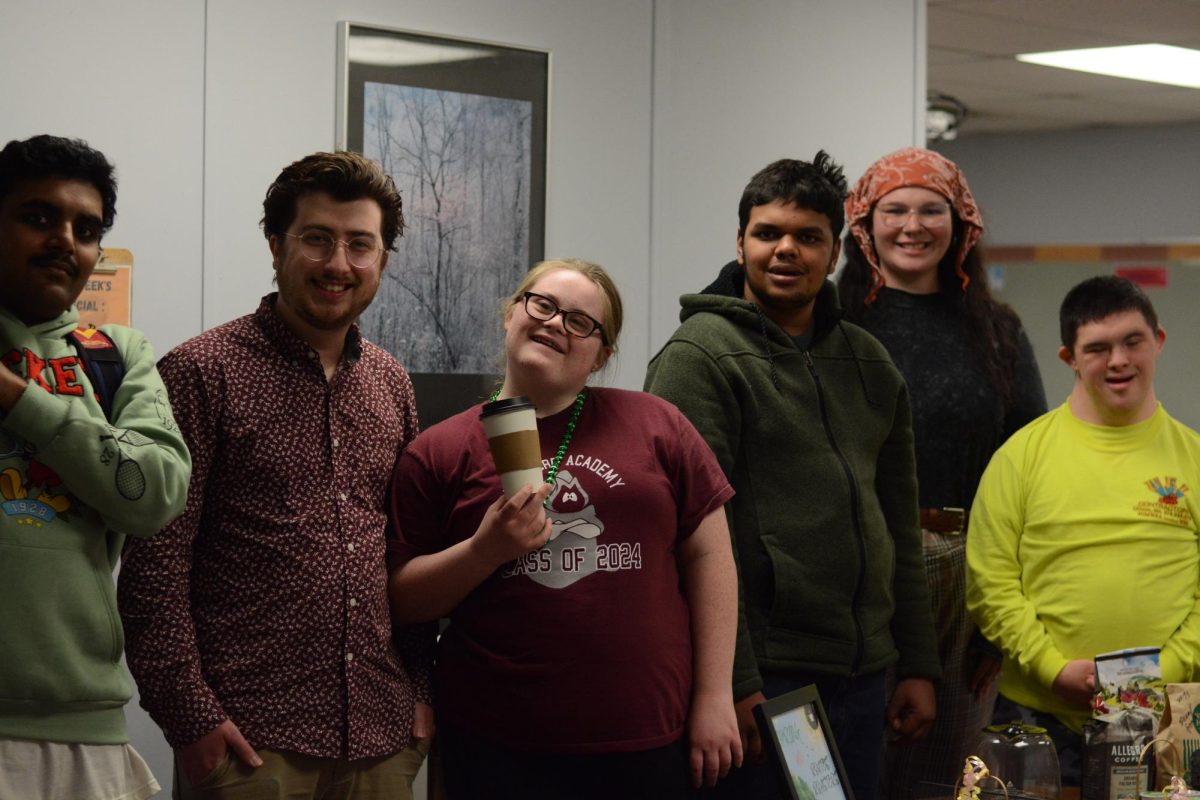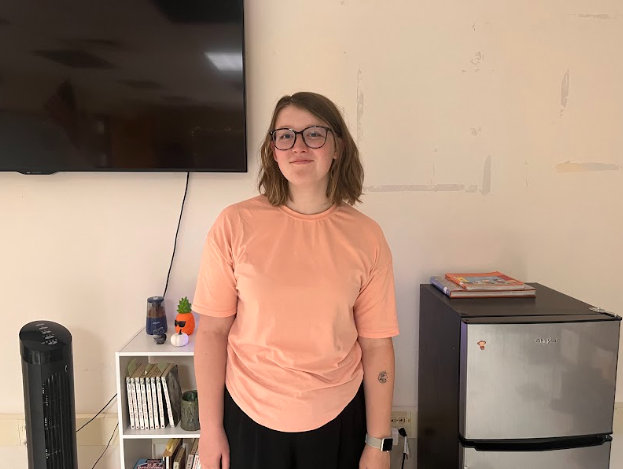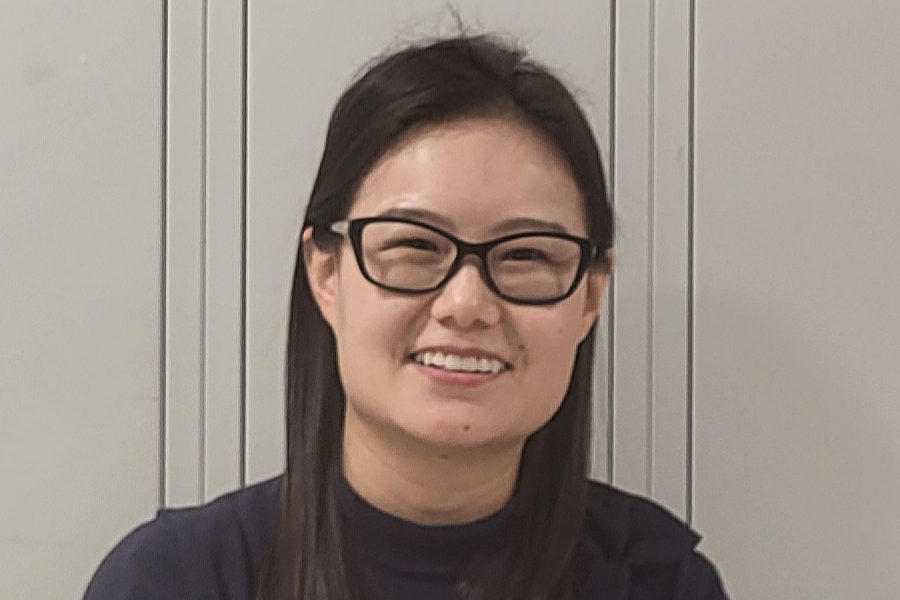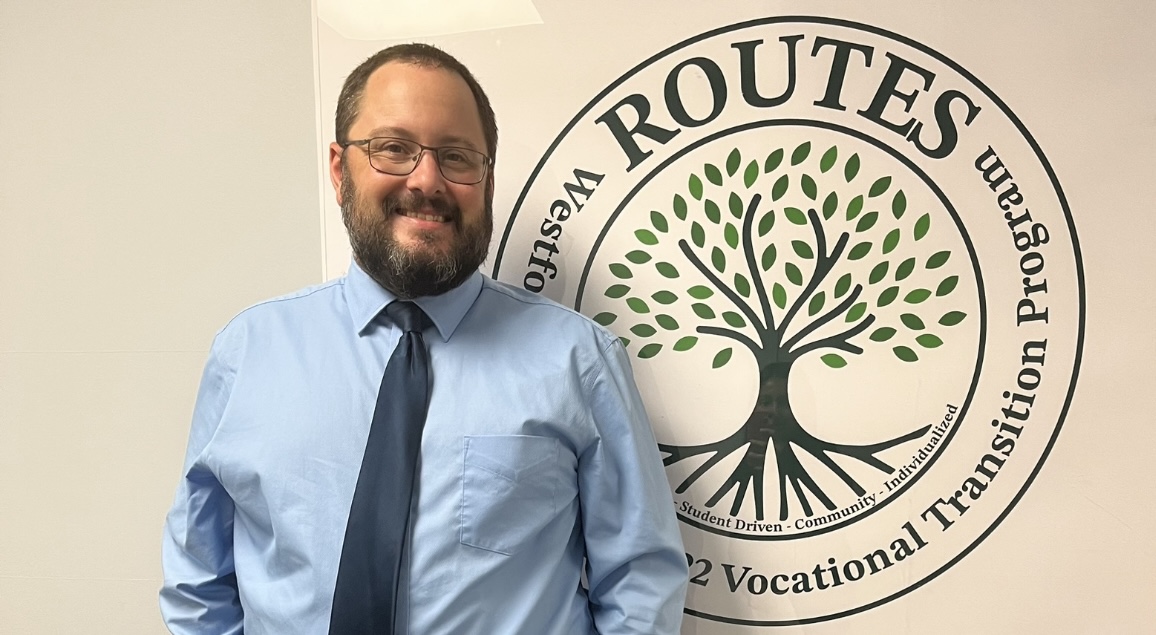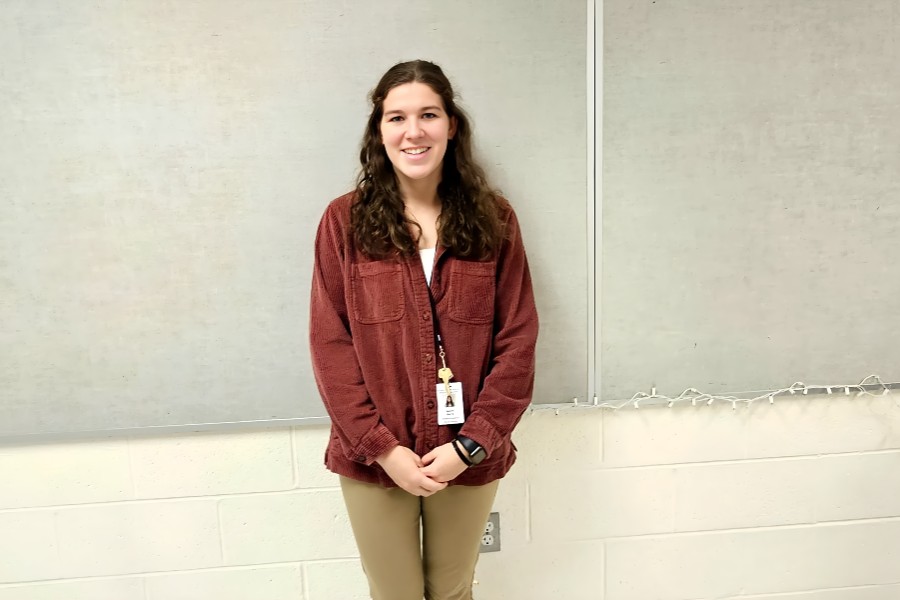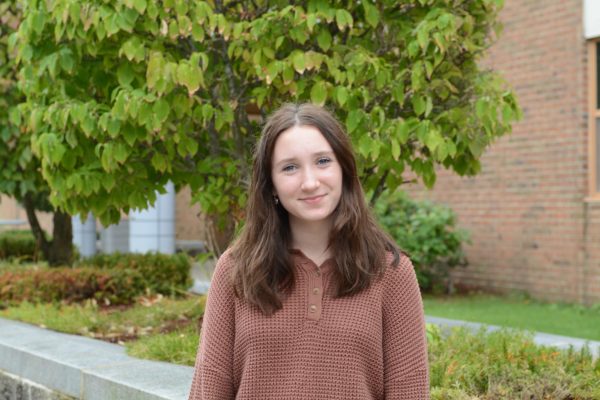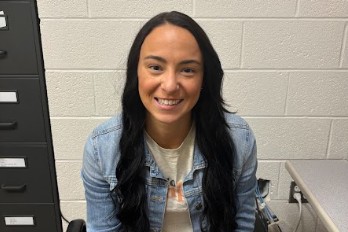
Samantha Coyle will be joining the WA staff as a speech pathologist, in addition to working at Nabnasset Elementary School. She is excited for the new environment at WA, as well as interacting with older students and discussing their futures. Coyle hopes to use her own high school experiences to demonstrate to students that the future is always brighter.
Q: If you were an ice cream flavor, what would you be and why?
A: Mint Oreo, from Kimball’s. They have the whole oreo, so it’s the most decadent flavor.
Q: Do you have any hobbies?
A: I do have a lot of different hobbies right now, like piano lessons. I do mountain biking in the summer. I [also] wake board, and then in the winter, I snowboard, but I’m learning to ski as well, just to have both.
Q: Is there a big difference between the age groups you teach at Nabnasset and here?
A: It’s a huge difference. So down at Nab, I [help] preschool through second grade [students], so they’ll start on their third birthday and go until they’re eight or nine. Now, coming up here to high school, the kids are a lot more independent and they’re also talking about colleges and their futures.
Q: How long have you worked for Westford?
A: This is my sixth year in the Westford district.
Q: What does your average day look like?
A: Well, I see students in 15 to 30 minute increments, typically groups of one to four, depending on their age and their skill set. There’s also usually a prep period somewhere in there, [with me] scrambling to prepare some materials.
Q: What made you want to go into speech therapy?
A: When I was in high school, I took sign language as my foreign language, and I loved it. I wanted to be an interpreter. There’s very few programs that offer interpreting as a major, as a degree, really. So I initially applied to schools that had it in any sense, whether it was a degree or whether it was a minor. And I ended up, out of the schools I applied to, going to Western Kentucky for communication disorders. Once I took that initial speech class, I was hooked. It was interesting, and I was so engaged, and the material just came really easily.
Q: What was your high school experience like?
A: I worked throughout high school, so I was focused on things other than academics.
Q: If you could teach anything else, what would it be?
A: If it was at the high school level, then I would say sign language. I’ve always been really interested in, like, taking on speech from an academic perspective in a college level.
Q: What are the challenges you’ve faced getting this position at WA?
A: I think the most challenging thing about coming here is making sure that I’m giving the kids instruction that is appropriate for their level in terms of skill set, but also appropriate in terms of content. Down at preschool, it’s really [about] emerging communication skills, and up here, it’s much more academically based. So I really want to make sure that these sessions are meaningful and a good use of their time, and are working towards not only their IEP [Individualized Education Plan] goals, but their educational and academic goals as well. I want it all to seamlessly tie together and be a cohesive educational experience for these kids.
Q: How do you feel about your students so far?
A: They’re all great. They’re all so different. They’re all just so much older than I’m used to. It’s been really interesting to hear their preferences, and a lot of them are already thinking about what’s next in life. I have a rather large freshman cohort this year, and they’re already talking about college, work and and that’s really cool for me, because I have preschoolers who just want to fly and they just want to nap. So it’s been great.
Q: What are you most looking forward to as a staff member at WA?
A: I really am intrigued to see some of the Unified Sports. I’ve heard a lot about Unified Basketball and Track. Some of the students I have are constantly talking about it. They’re just so excited, and they’re so engaged in it. And it sounds like a really great opportunity for everyone. So I want to see how that is run.
Q: What advice would you give students who want to go into this field?
A: I would say, first and foremost, find a speech therapist you can observe, because I think it’s really insightful to just know what a day looks like for us. I also think one of the biggest misconceptions about speech therapy is that it’s school based, or like little kids based. We can actually work pretty much anywhere. We can work in skilled nursing. We can work at hospitals, and rehab settings. We do anything from speech to swallowing. So there’s a lot of diversity in our profession, which I think lends itself well to the stages of life. A lot of speech therapists, when they don’t have little kids, want to work with little kids, and when they have little kids at home, they want to work with older kids or adults.
Q: What is something that people would be surprised to know about you?
A: Academically, I said I went to Western Kentucky, and then for graduate school, I went to Purdue, which is [a very good school] in terms of Speechology master’s degrees, ranking between third and fourth place in the country. I graduated with a 4.0 or a 3.8 so I was very academically driven in college. In high school I graduated with a 2.8. and that was after two years of really getting it together and working really hard. So I think it’s one of those things where you see people who are doing well in life now, and that doesn’t mean they’re always doing well in life.
I think that’s one of those really cool [things] about me getting to work in a high school setting is that I see some kids that struggle, and I can give that personal narrative to say, “even though right now isn’t going well, it doesn’t mean later isn’t going to go well, and it doesn’t mean you won’t do well in a college setting, because it is so different”. I’m impressed by how much control Westford Academy allows their students to have over their coursework. So many of you guys take so much responsibility over your coursework and in college, you just have so much more control over your path of study that I think a lot of kids that may not have necessarily succeeded in high school will succeed in college because it’s more narrow, focused and more interest based. I think looking at me now, I seem very type A put together academically, educationally, career wise, but that wasn’t always the case.

